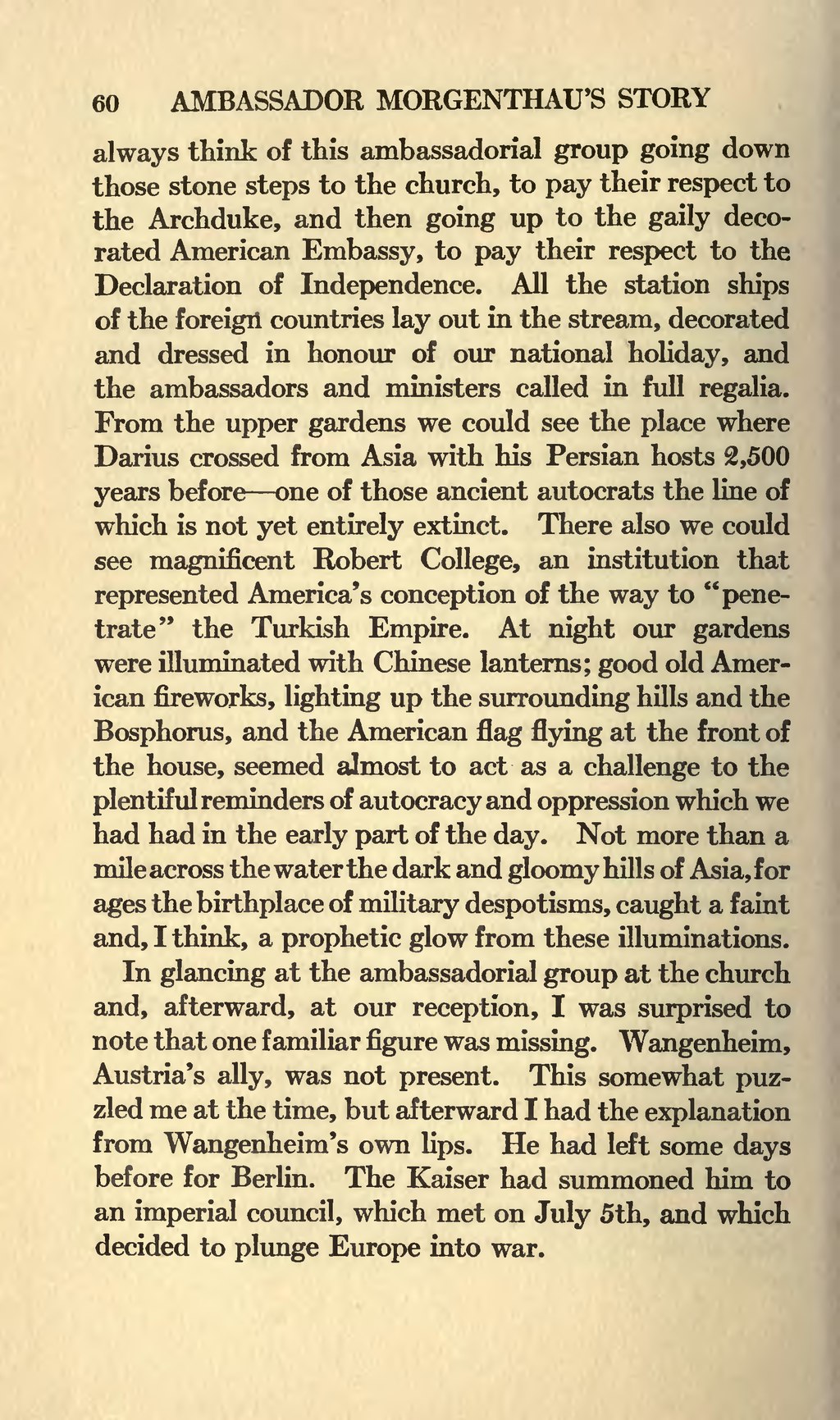always think of this ambassadorial group going down those stone steps to the church, to pay their respect to the Archduke, and then going up to the gaily decorated American Embassy, to pay their respect to the Declaration of Independence. All the station ships of the foreign countries lay out in the stream, decorated and dressed in honour of our national holiday, and the ambassadors and ministers called in full regalia. From the upper gardens we could see the place where Darius crossed from Asia with his Persian hosts 2,500 years before—one of those ancient autocrats the line of which is not yet entirely extinct. There also we could see magnificent Robert College, an institution that represented America's conception of the way to "penetrate" the Turkish Empire. At night our gardens were illuminated with Chinese lanterns; good old American fireworks, lighting up the surrounding hills and the Bosphorus, and the American flag flying at the front of the house, seemed almost to act as a challenge to the plentiful reminders of autocracy and oppression which we had had in the early part of the day. Not more than a mile across the water the dark and gloomy hills of Asia, for ages the birthplace of military despotisms, caught a faint and, I think, a prophetic glow from these illuminations.
In glancing at the ambassadorial group at the church and, afterward, at our reception, I was surprised to note that one familiar figure was missing. Wangenheim, Austria's ally, was not present. This somewhat puzzled me at the time, but afterward I had the explanation from Wangenheim's own lips. He had left some days before for Berlin. The Kaiser had summoned him to an imperial council, which met on July 5th, and which decided to plunge Europe into war.

